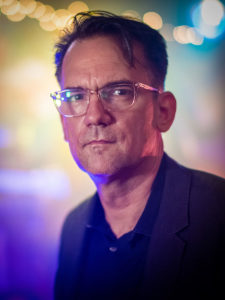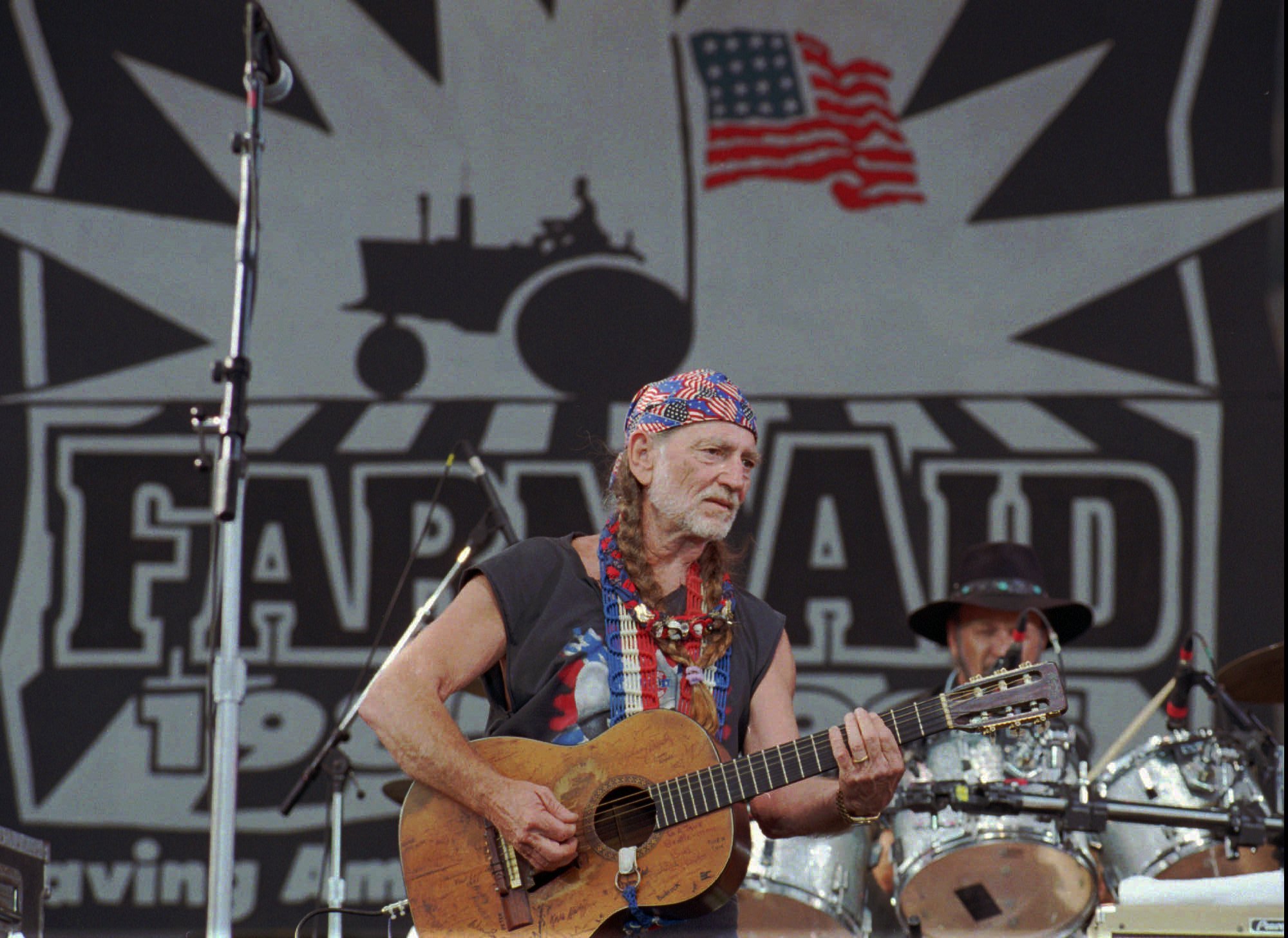An extraordinary musician, a renowned songwriter, an icon. What’s left to be said about Willie Nelson that hasn’t already been said?
Thom Zimny and Oren Moverman, the directors of the first authorized documentary project about Willie, were tasked with telling his story in a way that’s never been told before. “Willie Nelson & Family” features both archival footage and new interviews with Nelson, his late sister Bobbie, and many other fellow musicians and friends. The series premiered at the 2023 Sundance Film Festival; wider release details are expected to be announced.
Zimny and Moverman spoke with Texas Standard. Listen to the interview in the player above or read the transcript below.
This transcript has been edited lightly for clarity.
Texas Standard: I understand this is the first authorized work of this type about Willie. Why do you think he decided to open up to this process several decades into his career?
Zimny: I think I don’t want to speak for Willie, but I think we just had the right conversation with Willie and his team, and they gave us the opportunity to step in to Willie’s world. And with the world being kind of shut down [because of the pandemic], we had this chance to sit with the man, his family, and also dive deep into the vault and pull out images and music that have never been seen before. It was the time ,and Willie was ready.
Did you come across anything new or different that you think maybe even longtime Willie fans might pick up in your series?

Oren Moverman, co-director of Willie Nelson & Family, an official selection of the Indie Episodic Program at the 2023 Sundance Film Festival. (Courtesy of Sundance Institute)
Moverman: Yeah, and we have proof for it because people are watching the film and saying, “I didn’t know this, and I didn’t know that.” I think that, you know, because it’s a five-part movie, we had the opportunity to go deep. There was a deep dive into his story, but also into his words. And so him being at home, sitting around with us, really no structure, just cameras and a conversation. He told us quite a few things that surprised us and led us down the road into stories that we didn’t know. So, you know, there’s also the element of mythology. There are many myths and stories that are wonderful and maybe true and maybe not. But we were looking for the emotional truth that Willie was willing to give us, and he was absolutely open and authentic and generous, as were the rest of his family and friends and people who were on camera. And so it was an opportunity not just to go into discovery of new details of narrative, but really into an emotional truth that is conveyed through the story.
Could you say a little bit about the heartbreak in Nashville that led Willie back to his native Texas?
Zimny: Well, I think we with this documentary show, we had the chance to show the many sides of the journey that Willie has had, and we didn’t shy away from the details when life threw Willie some difficult times. But again and again, the overall recurring theme was Willie’s love for people and also starting again. Throughout his life, he had faced many different challenges. But the spirit of Willie, we hope, is conveyed in the choir voices that give witness to Willie’s perseverance. There was this there is in every film, there’s these moments of conflict. But how Willie looks at it and and also Willie’s awareness of the power of music as a healing force. And the idea of family was something that we came back to again and again. And I think that if, you know Willie casually as a fan or if you’re a hardcore fan, that the film gives you this opportunity just to see how he used these elements to survive and also carry on and keep creating as an artist.
Some of the most moving moments in this series are the interviews with and the stories of Bobbie Nelson, Willie’s sister and closest musical companion. She died last March. Did that affect the way you approached this work?
Moverman: You know, we knew that there was no telling Willie’s story without telling Bobbie’s story. She’s remarkable. And she is in many ways in his life and in the movie, the sort of what Amy Nelson calls “the twin soul.” And without her, the story is impossible to tell. She probably deserves her own separate documentary, but that would be about her and Willie, because there’s no, you know, treating that story apart.
When she died, did that have any effect on how you told that story or what you included and what you didn’t?

Thom Zimny, co-director of Willie Nelson & Family, an official selection of the Indie Episodic Program at the 2023 Sundance Film Festival. (Courtesy of Sundance Institute)
Zimny: I think that we went beyond that fact because we had an emotional connection with her. We want to make a film that’s timeless in some ways. It wasn’t for us to define the end of Bobbie or to make a narrative that has any ending. We were guests in this space and in this time. And Willie’s still on the road, Willie’s still creating. And actually the spirit of Bobbie is still very active. So we didn’t want to include any sort of finality to Bobbie, because the power of this message is telling her story as clearly as possible and trying to get close to the intensity of her contribution in the music and in the family. So, you know, in some ways we did that same process with a lot of people in Willie’s life. We let you get an understanding of who they are. But the film itself is not putting any end points or chapters. Because for us, Bobbie’s still very much in the spirit of the family.
Moverman: And as lucky as we felt talking to Willie and all these amazing people and legends in themselves, it was really Bobbie that anchored us. And when she died, we, you know, we cried. We felt so lucky to have known her, to be in her presence, to go with her and Willie to Abbott, Texas, to the church where they grew up. It was a tremendous gift. But we know that she’s going to live forever, and that’s what movies do. They let people live forever.
You could have focused on Willie himself, but this is the story of “Willie Nelson & Family.” What does that “& Family” mean? Obviously, we’ve touched on Bobbie. But what’s meant by family if you look at the stage these days?
Moverman: The thing we discovered, and Willie confirmed it, is that obviously family is a huge theme in his life. And if you know his story or if you’re going to learn it from the movie, you’re going to understand that family is at the center of his story and every motif in his narrative. What we learned is that for Willie, family is obviously blood relatives. It’s his band. It’s his fans. Family is the record-buying public. Family is people who come to concerts. Family is something that he does so naturally. And this is part of his magic. Just one part of it, but a big one where he makes people feel included in a group of people who are being truthful and authentic with each other. And, at the end of the day, we call it ‘Willie Nelson & Family’ because the family that is going to come into this is really the audience watching this.







